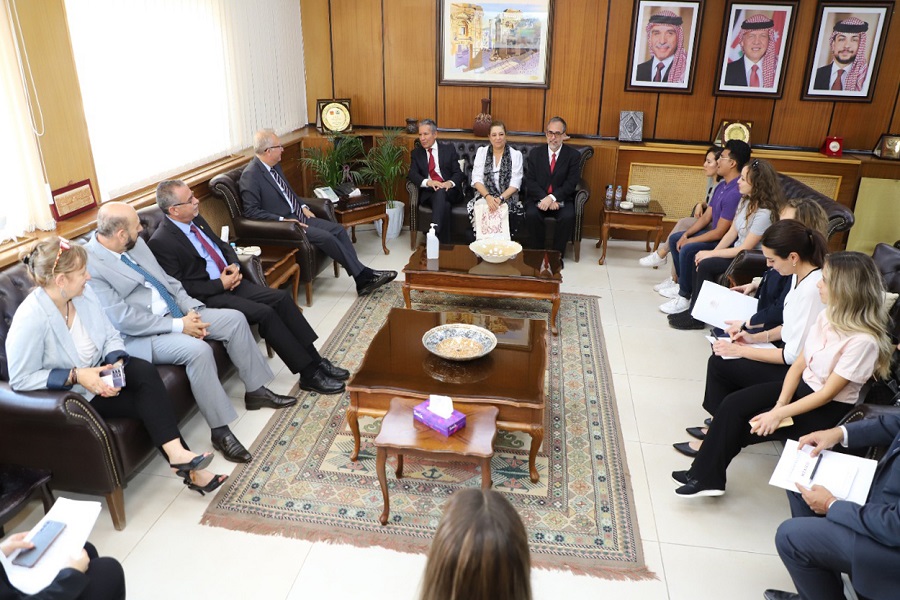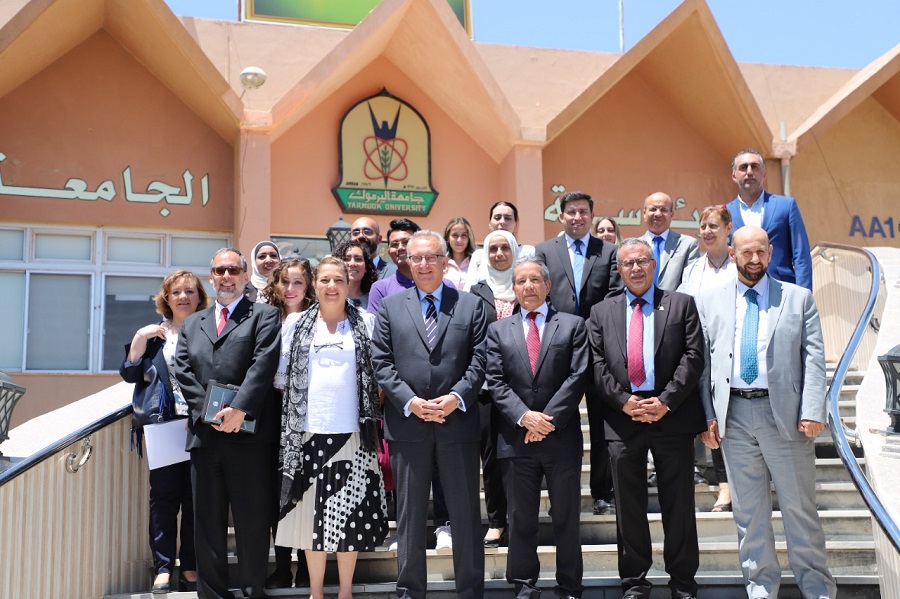
The President of Yarmouk University, Professor Islam Massad, met with a delegation from the University of Mexico, El Colegio de México, headed by the President of the University, Dr. Silvia Giorguli, in the presence of the Mexican Ambassador in Amman, Roberto Rodriguez Hernandez, to discuss possible ways of cooperation in social sciences and humanities, international relations, and studies of the Middle East and the Arab world as well as teaching Arabic to non-native speakers. Massad first welcomed the delegation and stressed the importance of strengthening cooperation through agreements and memoranda of understanding that contribute to achieving the desired outcomes, which reflects positively on the two parties. Such agreements, he explained, can include teaching Arabic and Spanish in a way that enhances the skills needed by students and opens up new horizons for them in the labor market. He also indicated that a special program for teaching Arabic to non-native speakers can be prepared at the university's language center to meet the expectations of the students of the University of Mexico, whether face-to-face or online.
The Mexican ambassador expressed the embassy's support for cooperative relations between Mexican educational institutions and Yarmouk University, stating that the University of Mexico is a gateway for cooperation with various universities, institutes and educational institutions in Latin America, especially as it has more than fifty years of experience in Research and studies related to Asia, Africa and Latin America.
For her part, Giorguli stressed the importance of the meeting, which is her first visit to the Middle East, pointing out her keenness to cooperate with Yarmouk University and open up prospects for joint work. She then pointed to the possibility of cooperation through the exchange of students and faculty members in the fields of social sciences and humanities, such as public administration, history, literature, sociology, demography, urban studies, and economics. She also referred to the possibility of cooperation in conducting and implementing research studies and scientific projects in areas of common interest like immigration and asylum, international relations and digital humanities, studies of the Middle East and the Arab world, and teaching Arabic for university students.




